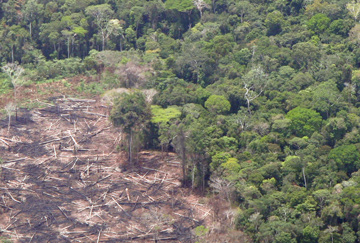Amazon research and conservation cannot ignore social issues
Amazon research and conservation cannot ignore social issues
Jeremy Hance, mongabay.com
February 25, 2008
|
|
For Amazonian conservation to be effective it must start paying more attention to social issues according to a new paper: Taking things public: a contribution to address human dimensions of environmental change. The paper’s author, Dr. Diogenes Alves, of the National Institute for Space Research told mongabay.com that “the main point of this paper is that it became crucial to recognize the social, economic and political settings associated with environmental change in the Amazon.”
Dr. Alves’ uses one of the Amazon’s biggest research projects as an example, the LBA or Large-Scale Biosphere-Atmosphere Experiment. LBA brought together several sciences to create a comprehensive picture of the Amazon—including biogeochemistry, atmospheric chemistry, carbon studies, land use and cover studies, hydrology and water chemistry, and physical climate studies—but the experiment initially lacked any formal way to connect the findings to society. After research began, the Scientific Steering Committee noticed the need for social scientists to be involved and created a place for them. However, the LBA was not able to make full use of the social studies as the paper points out: the LBA’s “proposal does not elaborate, for example, on the political aspects of the Climate Convention and its negotiations, or on the discussion of the very notion of development or sustainability.” These gaps hurt the effectiveness of LBA, according to Alves.

|
The paper concludes that social sciences should be a required part of scientific experiments: “science and technology provide critical elements to understand environmental change, but, as the LBA experience shows, the lack of close articulation with the social sciences misses important issues, diminishing the potential impacts of that understanding. In due course, that understanding has to be put into use by society itself, and the social sciences are key to understand this complex process, to help in making science results public, and exploring how society articulates publicly, most particularly, in search of institutional responses to change.” If employed, social science could help bridge the gap between environmentalists and the Brazilian government.